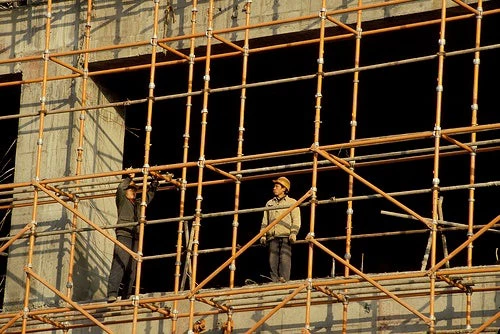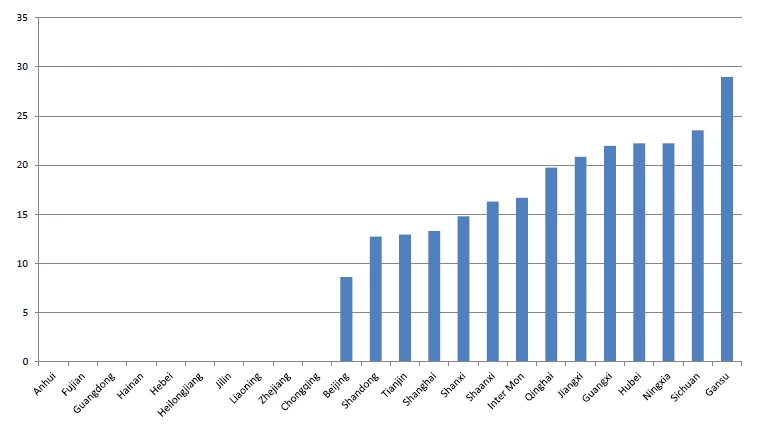Shi Li is a Professor of Economics at the School of Economics and Business, Beijing Normal University.
For China, the minimum wage represents a useful tool to reduce wage and income inequality, and in recent years, the minimum wage has risen rapidly in many provinces (notably Gansu and Sichuan) (see chart). We recently asked Shi Li (Professor of Economics, School of Economics and Business, Beijing Normal University) about the economic impact of the higher minimum wages.
He cautions that enforcement was lax until 2009 and the results of the initial studies are inconsistent and sometimes contradictory. But he does point to some evidence of higher unemployment, especially among young adults and the least skilled and particularly in less developed areas (as opposed to coastal cities). There is also some evidence of reducing wage and income inequality and narrowing the gender wage gap.
(By province 2011-2012, in percent)
Source: Shi Li, Liang Xiong, and Linxiang Ye
For more on this topic, see “Demystifying the Impact of Minimum Wages” and “Devising Minimum Wages in Emerging Markets” and the Jobs Group’s Google Hangout on the topic organized by the Hong Kong University of Science and Technology Institute for Emerging Market Studies.





Join the Conversation